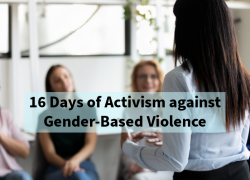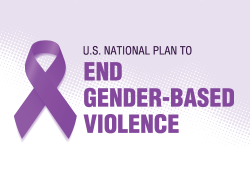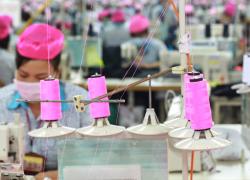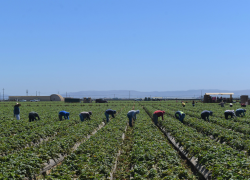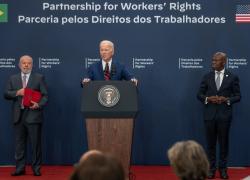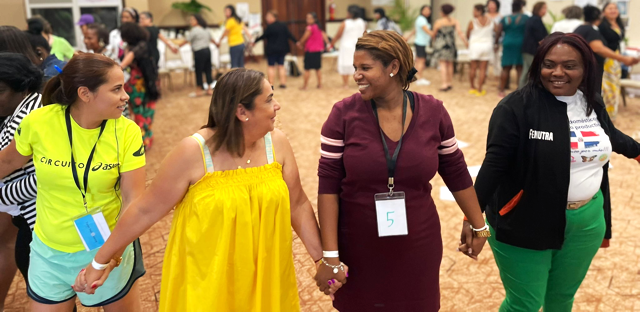
This year, the U.S. Department of Labor commemorates the 16 days of activism against gender-based violence by highlighting the vital importance of representative worker organizations in preventing and addressing gender-based violence and harassment at work. The department is committed to uplifting women workers’ leadership and voice. We have seen how authentic engagement among workers, employers and governments results in better jobs with stronger worker protections.
The International Labor Organization Convention on Violence and Harassment, known as C190, exemplifies the power of women workers organizing. C190 — the first global standard that establishes the right of everyone to a world of work free from violence and harassment — is the product of decades of grassroots movement building by women workers globally. Since its adoption in 2019, women workers have promoted its ratification and implementation of its principles.
We are seeing workers expand women’s leadership in trade unions to address gender-based violence and harassment through collective bargaining agreements. For example, concerted efforts to ensure gender parity in leadership structures in the National Confederation of Apparel Workers in Brazil led the union to better understand the issues women workers face in the garment industry. A survey revealed that 70% of women experienced gender-based violence and harassment at work and were also paid less than men. As a result, clauses to address and prevent gender-based violence are entering into collective bargaining agreements across the country. In Guatemala, a 2021 report from the Center for Global Workers’ Rights at Penn State University underscored the difference these agreements make, as 58% of women reported being sexually harassed on the job at non-union banana packing plants compared with 8% at unionized packing plants.
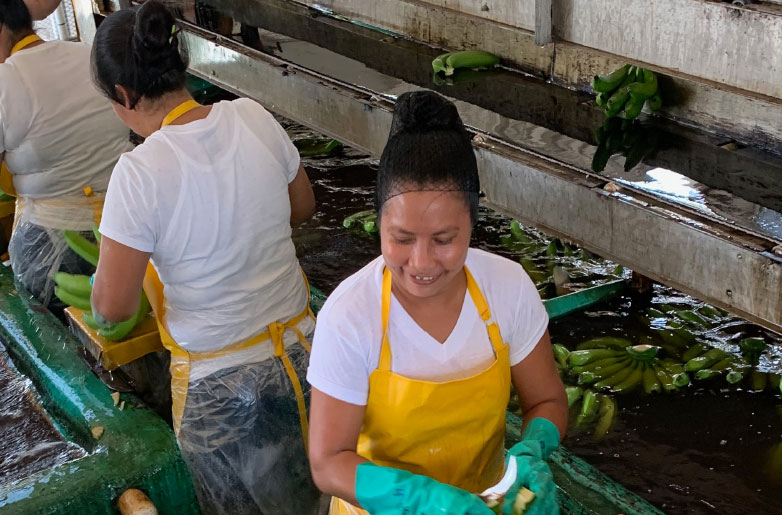
As another powerful example, women workers in India and southern Africa have engaged major global fashion companies supplying from factories to develop enforceable agreements to identify, remedy and prevent gender-based violence and harassment in their supply chains. Known as the Dindigul and Lesotho agreements, respectively, these initiatives draw directly from C190 as well as ILO Conventions 87 and 98 on Freedom of Association and Collective Bargaining, and center women’s agency through their trade unions in grievance handling and remediation as well as establish independent monitoring entities.
In the U.S., women workers have used local legislation to address gender-based violence and harassment, including in the hospitality industry. After a 2016 survey by UNITE HERE showed hotel housekeeping workers were experiencing high rates of gender-based violence and harassment at work, such as being groped or assaulted by guests while cleaning rooms alone, women union workers collaborated with the city of Chicago and hotel employers to advocate for legislation that would increase safety. That collective action led to a law requiring hotel employers in Chicago to provide panic buttons to their housekeeping staff. This practice has been implemented in several places throughout the United States, including Seattle.
To raise awareness of successful models that reflect principles from C190, the Women’s Bureau entered into a memorandum of understanding with the ILO Office for the United States and Canada to bring together workers, unions, employers, and state and local government representatives across the country to identify and share effective practices for the prevention and elimination of gender-based violence and harassment.
For example, through Women’s Bureau and ILO convenings with ANEW in Washington, contactors and workers in the construction industry learned about the principles of C190 and shared ideas to prevent violence and harassment in their industry. In 2023, the Women’s Bureau also announced the award of more than $1.5 million in grants to support community organizations to prevent and respond to gender-based violence and harassment in the world of work. These Fostering Access, Rights and Equity grants — the first of their kind in the department — will help survivors and women at high risk for violence and harassment in the workplace by investing in workers centers, like Restaurant Opportunities Center United, where women are organizing for stronger rights and protections and democracy.
As we look to commemorate the fifth anniversary of C190 next year, the Bureau of International Labor Affairs and Women’s Bureau are committed to elevating women workers’ voices and building on effective models to end gender-based violence and harassment at work in the United States and abroad.
Wendy Chun-Hoon is the director of the Women’s Bureau. Follow the Women’s Bureau on Twitter/X at @WB_DOL. Thea Lee is the deputy undersecretary for international affairs. Follow the Bureau of International Labor Affairs on X/Twitter at @ILAB_DOL and on LinkedIn.

 U.S. Department of Labor Blog
U.S. Department of Labor Blog
